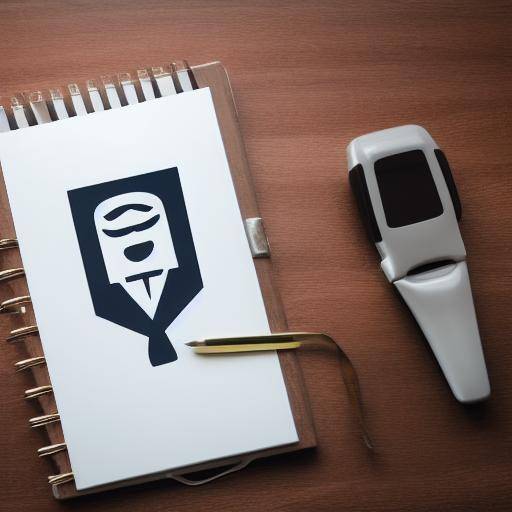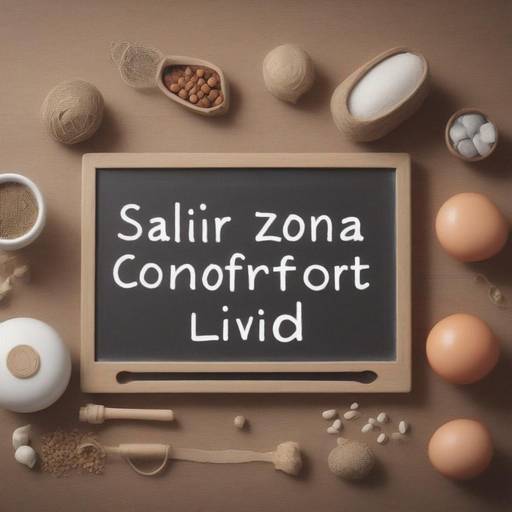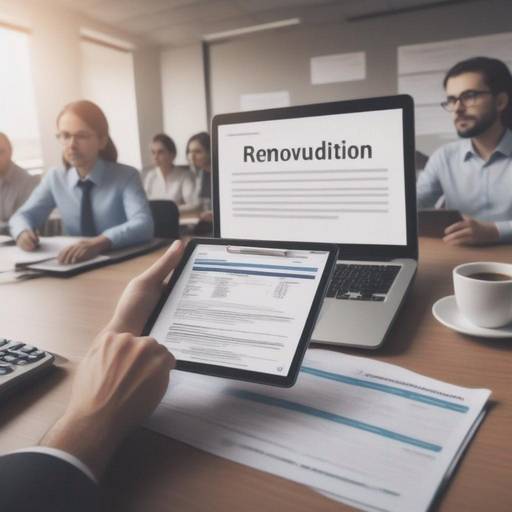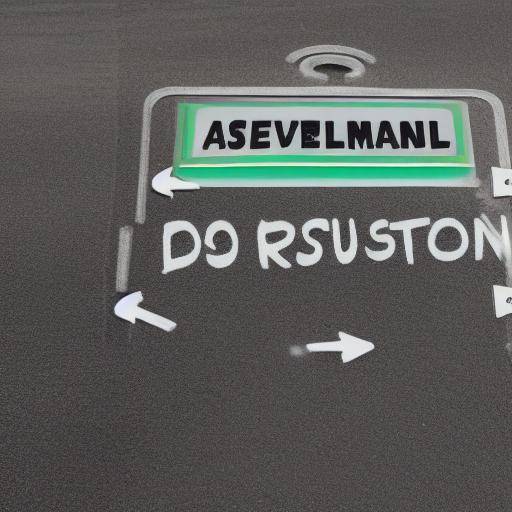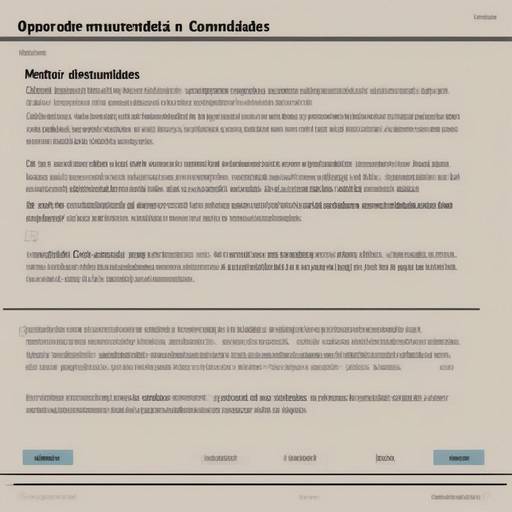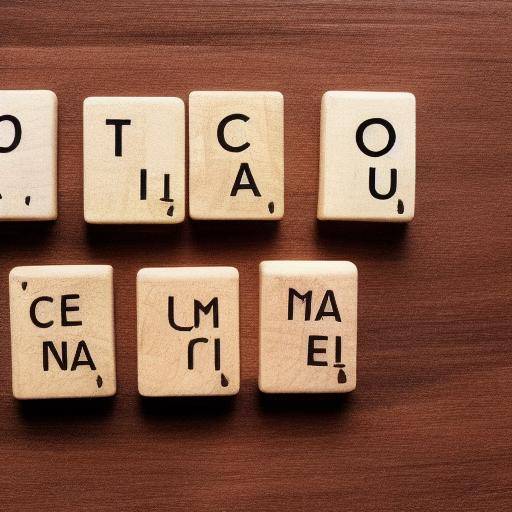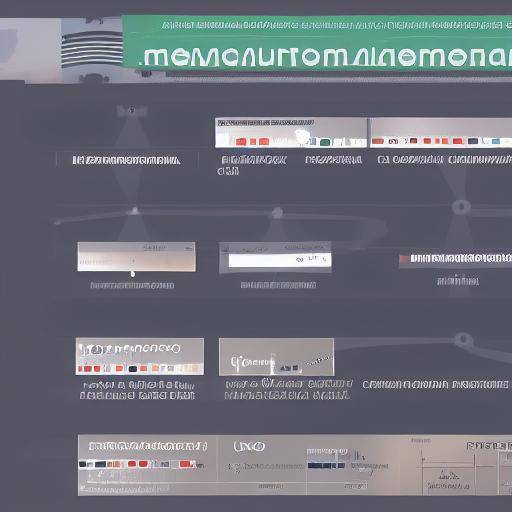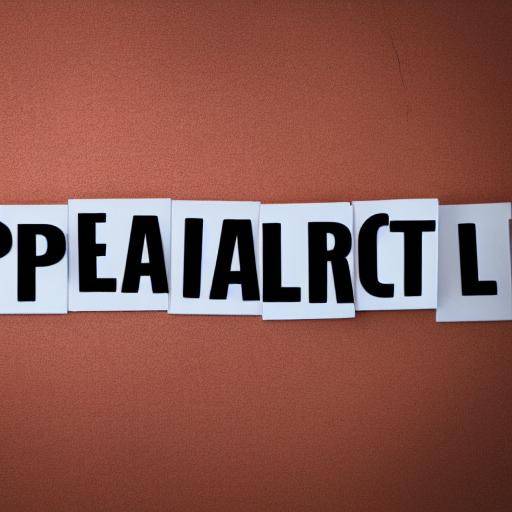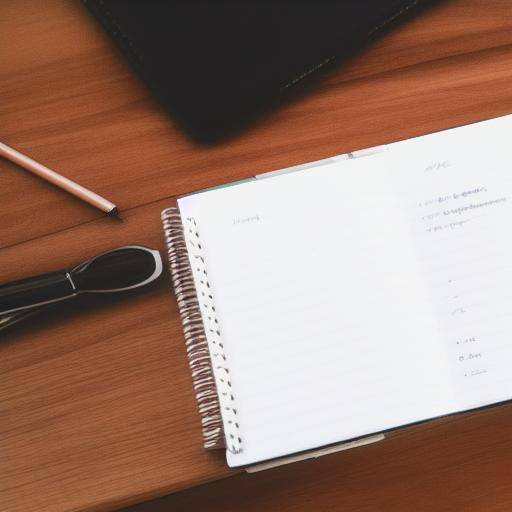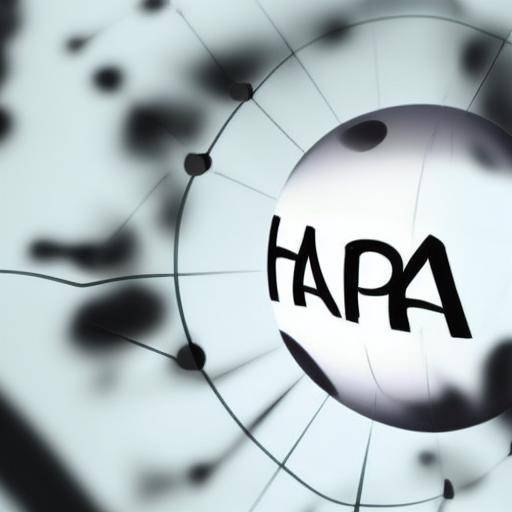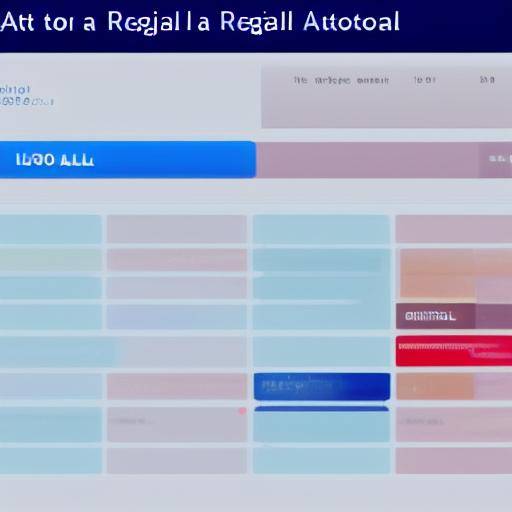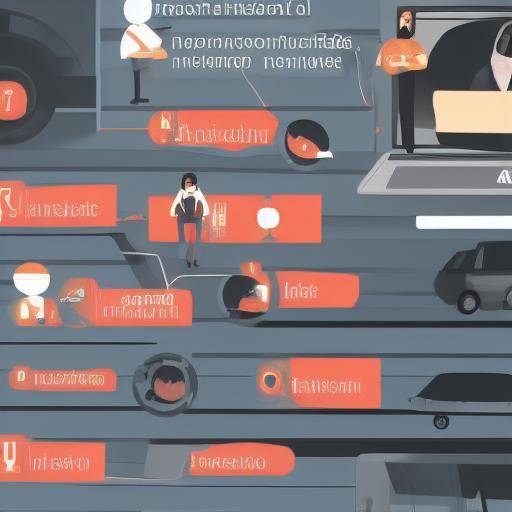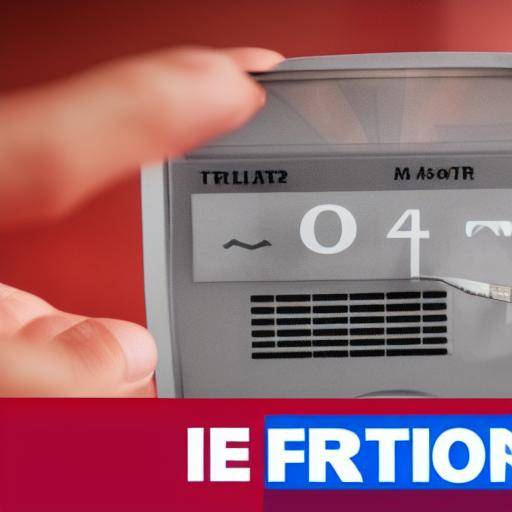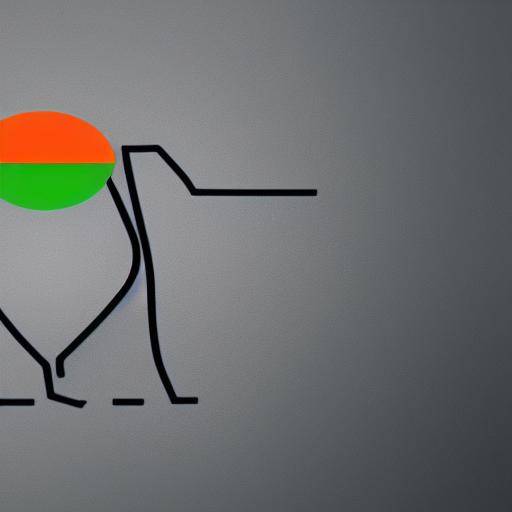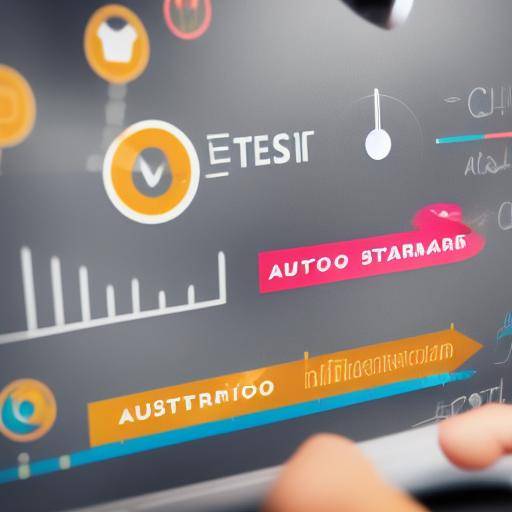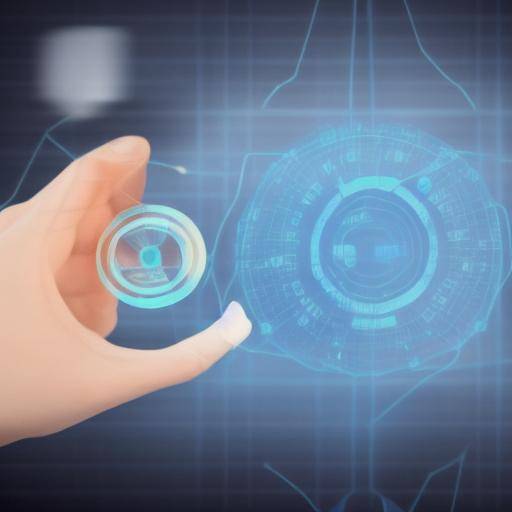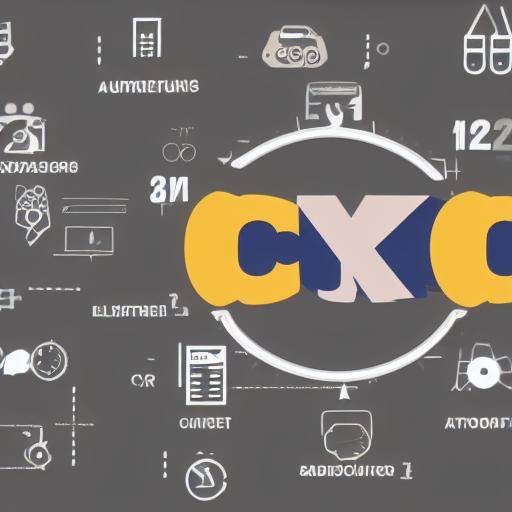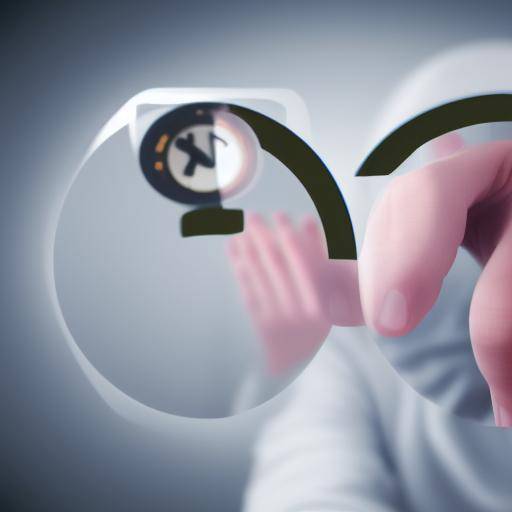
Introduction
Self-evaluation is a powerful tool for personal growth, as it allows us to identify our strengths and weaknesses objectively. In this article, we will explore how to use self-assessment to improve our understanding of ourselves, identify areas of improvement and enhance our strengths. You will learn about the importance of self-evaluation, its benefits, and how to apply it in different aspects of your life. Dive into this journey of self-knowledge and personal growth!
History and Background
The practice of self-evaluation has its roots in antiquity, when philosophers and thinkers reflected on the knowledge of themselves. Throughout history, prominent figures such as Socrates and Plato emphasized the importance of personal reflection and self-knowledge. The notion of evaluating our own actions and qualities has evolved over the centuries, influencing disciplines such as psychology and sociology.
Self-evaluation has now become a key tool in the field of personal and professional development. With the advent of psychometry and skills assessments, people have access to more structured methods to identify their strengths and areas of improvement. Self-assessment is not only an individual tool, but it has also been integrated into educational and business environments as part of evaluation and development processes.
Analysis in Deep
Self-assessment offers many benefits, from increasing personal awareness to fostering continuous growth. By reflecting on our actions and skills, we can identify behavior patterns, improvement areas and growth opportunities. In addition, self-evaluation promotes personal responsibility, as it makes us aware of our impact on different aspects of our lives.
Despite its benefits, self-evaluation also presents challenges. Some people may feel uncomfortable in facing their weaknesses, which can generate resistance to the self-assessment process. It is essential to understand that identifying areas of improvement does not imply weakness, but an opportunity to grow and improve. By addressing the challenges constructively, self-assessment becomes a powerful personal and professional development tool.
Comprehensive review
Self-assessment can be applied in various areas of life, including work skills, interpersonal relationships, and personal goals. By doing self-assessment in the workplace, for example, you can identify your professional strengths, improvement areas and growth opportunities. This allows you to develop a professional development plan focused on enhancing your existing skills and acquiring new skills.
In addition, self-assessment in the personal environment can help you identify behavior patterns, driving positive changes in your daily life. By reflecting on your values, goals and priorities, you can align your actions with your aspirations and generate a greater sense of satisfaction and well-being.
Comparative analysis
The identification of strengths through self-assessment and personal growth are closely related. By recognizing your strengths, you can use them as a basis for your personal and professional development. On the other hand, self-evaluation also reveals areas of improvement that can become opportunities for your personal growth.
Self-evaluation and personal growth are interconnected processes that feed each other. By identifying your strengths, you can use them as a lever to meet your goals and overcome challenges. Simultaneously, by addressing areas of improvement, you can enhance your personal development, strengthening new skills and enriching your self-knowledge.
Practical Tips and Actions
By embarking on the journey of self-evaluation, we recommend following these practical steps:
- Set a regular time for self-evaluation: Designate a specific moment in your routine to reflect on your experiences, achievements and challenges.
- Use self-assessment tools: Explore different methods, such as personality questionnaires, skills assessments and 360 degree feedback to get a holistic view of your strengths and areas of improvement.
- Look for external feedback: Request the opinion of friends, colleagues or mentors to get external perspectives that complement your self-assessment.
- Set clear goals: Use the results of your self-assessment to set specific development goals; this will provide a clear approach to your personal and professional growth.
- Find learning opportunities: Identify areas you want to improve and look for training or development opportunities that will enable you to enhance your skills.
Ideas and Industry Reviews
Personal and professional development experts emphasize the importance of self-evaluation as a basis for growth. The regular practice of self-evaluation not only promotes self-knowledge, but also fosters a proactive approach to personal development. In addition, business leaders recognize the importance of self-evaluation in improving job performance and developing leadership skills.
Self-assessment has also gained relevance in the educational field, where it is used to promote self-reflection of students and promote more autonomous learning. By encouraging students to evaluate their own knowledge and skills, awareness-raising and personal responsibility are promoted in their learning process.
Case Studies and Practical Applications
To better understand the application of self-assessment, consider Ana, a growing professional. By self-assessing her skills, Ana identified her ability to lead projects as well as areas of improvement in time management. Using this information, Ana focused on developing time management skills through professional development courses and personal organization techniques.
In the business field, self-evaluation is used in performance evaluation processes, where employees reflect on their achievements, challenges and objectives. This practice promotes self-management and continuous development of skills, contributing to both individual and organizational growth.
Future Trends and Predictions
As awareness of personal and professional development continues to grow, the practice of self-assessment will become an even more comprehensive tool. New technologies and methodologies are expected to emerge to provide people with a deeper understanding of their strengths and areas of improvement. In addition, greater emphasis is placed on the integration of self-evaluation into labour and educational environments to promote continuous growth.
Conclusion
In short, self-evaluation is an enriching process that allows us to identify our strengths and weaknesses, thus driving our personal and professional growth. By consciously reflecting on our experiences and skills, we can develop greater self-knowledge and establish meaningful goals for our development. Self-evaluation is an invaluable tool that allows us to take the reins of our growth and maximize our potential.
Frequently asked questions
What is self-evaluation and why is it important?
Self-assessment is the process of reflecting on our own skills, actions and behaviors. It is important because it gives us a deeper understanding of ourselves, which allows us to identify our strengths and areas of improvement, thus promoting our personal and professional growth.
What are some self-assessment tools I can use?
There are several self-assessment tools that you can use, such as personality questionnaires, skills assessments, 360 degree feedback, and performance self-assessments. These tools provide different perspectives on your performance and skills.
How can I overcome the uncomfortable face of my weaknesses during self-assessment?
It is normal to feel discomfort when confronting our weaknesses, but it is important to remember that identifying areas of improvement is the first step for growth. Try to adopt a learning mentality and focus on personal development rather than feeling discouraged by your areas of improvement.
How can I use the results of my self-assessment to foster my personal growth?
Use the results of your self-assessment to set specific goals and develop an action plan for your personal growth. Identify learning opportunities and look for ways to enhance your strengths while working in your areas of improvement proactively.
What is the difference between self-evaluation and external evaluation?
The main difference lies in who performs the evaluation. Self-assessment implies that a person evaluates their own skills and actions, while external evaluation usually involves others, such as colleagues, supervisors or mentors, who offer their perspective on the performance of the person.
Can self-evaluation help me make important decisions in my professional and personal life?
Yes, self-evaluation provides a clear vision of your strengths, areas of improvement and personal values, which can be fundamental to making important decisions in your career and personal life. It gives you the necessary information to align your decisions with your goals and aspirations.
How can I integrate self-evaluation into my daily routine?
You can integrate self-evaluation into your daily routine by setting specific moments to reflect on your experiences, achievements and challenges. This can be through meditation, written reflection or simply taking a time to analyze your actions and decisions.
Conclusion: Self-assessment as a tool for personal and professional growth
Self-assessment is an essential process that allows us to identify our strengths and weaknesses, thus providing a solid basis for personal and professional growth. By consciously reflecting on our skills and experiences, we can develop deep self-knowledge and establish meaningful goals for our development. Self-assessment empowers us to boost our own evolution and maximize our potential. Incorporate self-assessment in your daily life and be the architect of your own growth!


